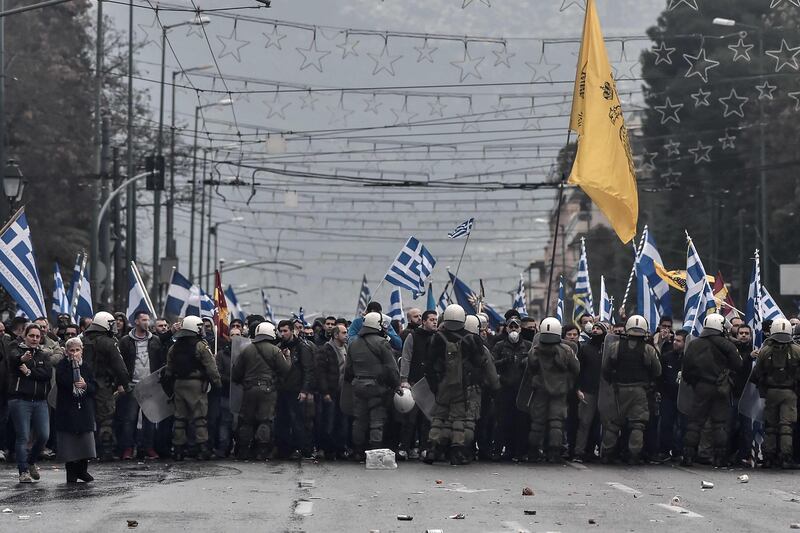Greek MPs on Monday started debating an agreement to normalise relations with Macedonia, a day after violent protests against the deal to recognise the former Yugoslav republic's new name erupted in Athens.
The agreement would see Macedonia change its name to the Republic of North Macedonia, while in exchange Greece would lift its objections to its northern neighbour joining Nato and, potentially, the European Union.
_______________
Read more:
Greek PM survives confidence vote after coalition collapse
_______________
The deal was debated in the Greek parliament’s committee on defence and foreign policy, where it came in for strong criticism from opposition parties that say it concedes too much to Skopje.
A plenary session will take up the debate on Wednesday, before a vote set for late Thursday.
Prime Minister Alexis Tsipras’s leftist government is struggling to secure the majority needed to back the deal and may need the support of as many as six opposition MPs.
On Sunday, tens of thousands of people gathered outside the parliament to protest the deal. At least 25 police officers were hurt during the clashes.
More protests are expected this week, including plans by farmers to use tractors to block roads on the Greek-Bulgarian border on the final day of the parliamentary debate.
The deal is aimed at ending decades of hostility between the two Balkan countries. Greece wants its small landlocked neighbour to change or modify its name, arguing that it currently poses a potential threat to the territory and ancient heritage of Greece’s own region of Macedonia.
Although the proposed compromise has been ratified by Macedonia, it remains deeply unpopular in Greece – with more than two-thirds of the public opposed to it, according to recent opinion polls.
The government narrowly survived a no-confidence vote last week after its right-wing coalition partner quit in protest at the proposed deal, leaving Mr Tsipras reliant on opposition support.
On Monday, a potential ally, the centrist Potami party, lost its status in parliament when it fell below the minimum representation requirement after an MP declared himself an independent.
Government spokesman Dimitris Tzanakopoulos blamed Sunday’s violence on “extreme-right elements,” but added that opponents of the agreement should be respected.
“Many of the objections are reasonable, but the government has its policy ... and a patriotic duty to secure the national interest,” Mr Tzanakopoulos said.
Strongly backed by the US and Western European leaders, the Greek government argues that the deal would boost Balkan stability and improve regional trade.






